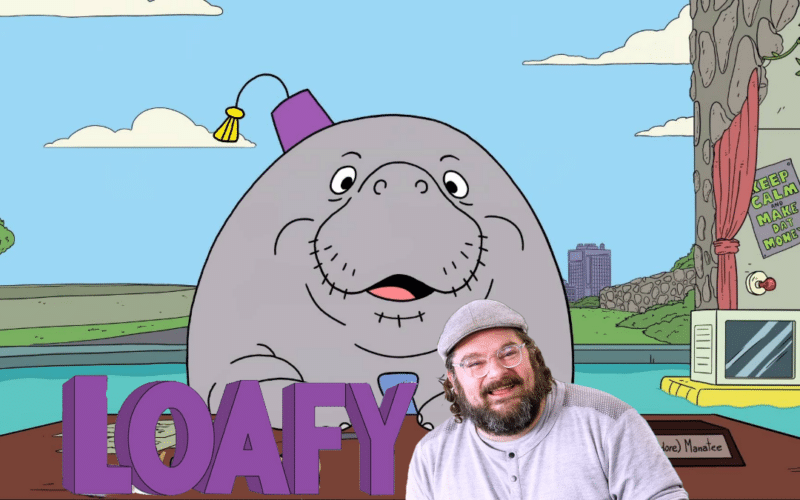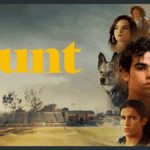Repeat after me: You can’t copyright the idea of an animated talking manatee.
From the legal system that brought us “Banana Meets Duct Tape” and “101 Pooping Puppies Too Many” comes “Dude, You Stole My Manatee!,” the latest ill-advised plunge into the murky waters of the idea-expression dichotomy. The sea creature at the center of this marine mishap is “Jukebox Manatee,” an animated talking manatee with a laid-back attitude and a human girlfriend who “suffers misfortunes as a commentary on life and its travails with irony and black humor.” Jukebox Manatee creator Daniel Kassel filed a lawsuit in 2023 claiming that Comedy Central, production company Cartuna and Saturday Night Live alum Bobby Moynihan copied these elements to create their own talking manatee program, the adult animated series Loafy.
But in a new ruling (read here), Southern District of New York Judge Jennifer L. Rochon has decided that Kassel’s claims don’t hold water, finding that the allegedly copied elements were too generic and generalized to be protectable and that the parties’ works weren’t substantially similar in any event. Here’s the whole fishy story, which I call “A Tale of Two Manatees.”
Oh, the Two Manatees!
Kassel’s Jukebox Manatee character, inspired by his lifelong love of manatees and personal experiences with bullying, first appeared on his YouTube channel in 2013. While attending the Pratt Institute in 2018, Kassel expanded his concept into a four-minute animated film titled Happily Everglades After. The short, which he presented in student showcases and posted on his YouTube channel in 2020, tells the story of a laid-back manatee living in the waterways of the Florida Everglades. Check it out below:
Meanwhile, Comedy Central’s Loafy is an eight-episode digital series about a weed-dealing manatee who spends his days getting high and hanging out in his tank at a run-down zoo in New York City. Here’s an example:
These two manatees are clearly swimming in different circles—one is philosophizing on life, while the other is a single father trying to provide for his kid while keeping his stash dry. Alas, Kassel didn’t agree, and because this is America, cue copyright infringement lawsuit.
Kassel v. Moynihan
Unprotectable Ideas
It’s hard to believe that Kassel would have brought this case if it weren’t for the fact that two former Pratt Institute classmates who attended his presentations later took jobs at Cartuna—one allegedly working as an animator on Loafy. Smartly, the defendants conceded access for purposes of their motion to dismiss, instead tackling the lack of substantial similarity. It’s important to remember that no amount of access will eliminate the need to show substantial similarities in protectable expression appearing in both works. Here, the characters aren’t remotely similar aside from the generalized (and unprotectable) idea of a talking manatee with a laid-back attitude.
While Kassel pointed to similarities like an easy-going manatee protagonist with a human girlfriend and a thematic focus on life’s travails with irony and black humor, the court found these elements too generalized to be protectable. The court referenced other animated works with talking animals who pontificate on life’s travails, including Family Guy, Rick and Morty, and BoJack Horseman, flatly rejecting the plaintiff’s assertion that he “has protectable rights over any manatee that philosophizes about life.”
Differences in Total Concept and Feel
Beyond these unprotectable elements, the court found significant differences in the total concept and feel of the works. Loafy is an eight-part series with bright, child-like animation set in a zoo, featuring a crude, drug-dealing manatee interacting with multiple human characters. Happily Everglades After is a four-minute short set the Florida Everglades, with an optimistic manatee who does not interact with humans or use human technology. Loafy focuses on crude humor, while Happily offers a more somber commentary on environmental issues and animal mistreatment.
The Bottom Line
Thankfully, Judge Rochon dismissed the complaint faster than Red Lobster pulled the plug on its endless shrimp promotion. Ultimately, Kassel’s case sank under the weight of its own unprotectable elements, reminding us that in the world of copyright law, not every talking manatee is created sea-quel.
As always, I’d love to hear what you think. Let me know in the comments below or @copyrightlately on social media. In the meantime, here’s a copy of the court’s order for your next beach read.
View Fullscreen





